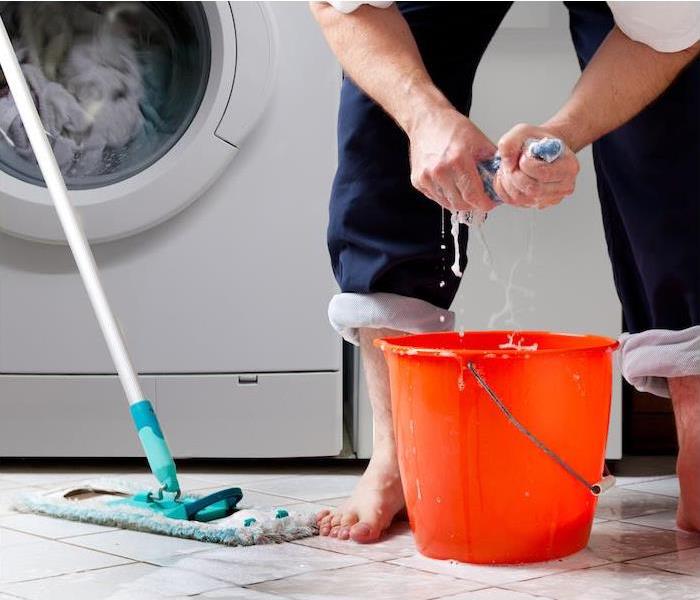Not All Water Is Created Equal.
3/22/2019 (Permalink)
 Our professionally trained and certified technicians can help you identify the type of water and how to safely mitigate any damage.
Our professionally trained and certified technicians can help you identify the type of water and how to safely mitigate any damage.
It would be much simpler if we could think of all water causing damage as the same, but in reality, there are three different classifications for this water: clean, gray and black. Understanding the differences in these types of water will help you understand how to better handle the situation.
What Is Clean Water?
Much like its name states, “clean” water is not the type to pose an immediate threat to your health as this water is free of contaminants and resulting from:
- Broken water lines
- Malfunctioning appliances
- Toilet holding tanks
- Snow melt and rainwater
This is the easiest type of water damage to clean up after, as there will not be as many microbes living in the water, but after sitting for 48 hours and following contact with the surfaces of a building, clean water then moves up to a category two, which is gray water.
What Is Gray Water?
With “gray” water, water damage cleanup and restoration will become a bit more serious and involved. It may pose a health risk because it will contain chemical or biological contamination.
Gray water can often come from dishwashers, aquariums, showers, etc. Again, the 48-hour exposure time applies here as well because if it is not quickly treated, gray water will turn into black water.
What Is Black Water?
Black water is the third classification of damaging water and the most serious of the three classifications. Considered highly contaminated by harmful chemicals and biological matter, it would include floodwaters containing soil and all sewage waters.
Sewage is laden with contaminating microbes, including bacteria, protozoans, molds, fungi and more, which can be harmful to humans. Some of the diseases that can be transmitted by black water are:
- Cholera
- Typhoid
- Hepatitis
- Gastroenteritis-type illnesses
Remember, when it comes to floods, assume that all water is black water since it will pick up contaminants as it travels along its path.
All three of these floodwater classifications are recognized by the Institute of Inspection, Cleaning and Remediation Certification (IICRC), which is an organization that certifies and sets the standard for the cleaning and restoration industry. Our technicians all study IICRC standards and best practices in water restoration and are available to help determine the steps to take to get your home back to normal.
It doesn’t matter what type of water has caused damage to your home or business, SERVPRO® of Greater Northern Charleston is here to help get the situation under control and make it "Like it never even happened." Don’t hesitate to reach out to us if you need emergency cleanup and restoration services! We are here for you 24/7 ~ 843.552.1226






 24/7 Emergency Service
24/7 Emergency Service